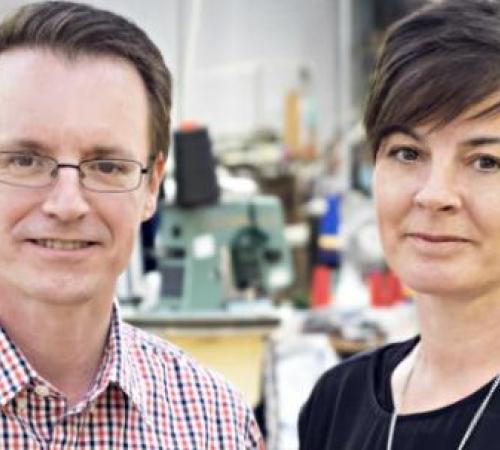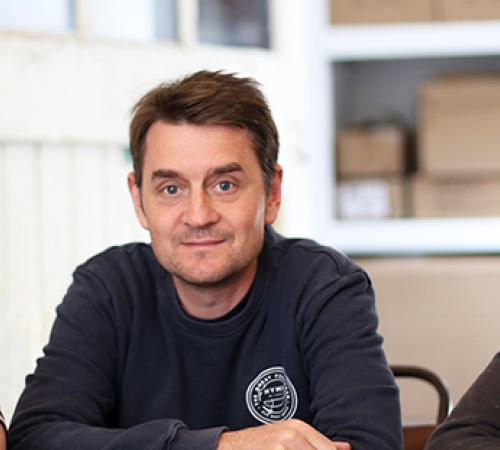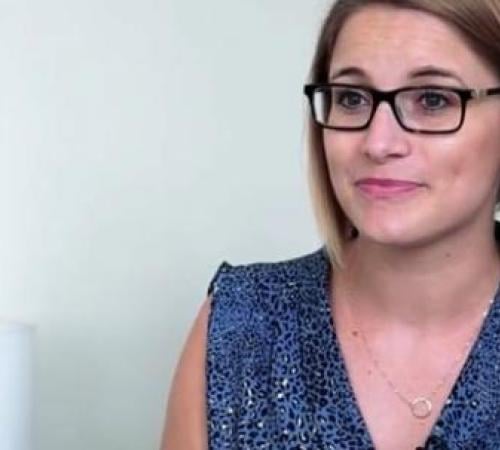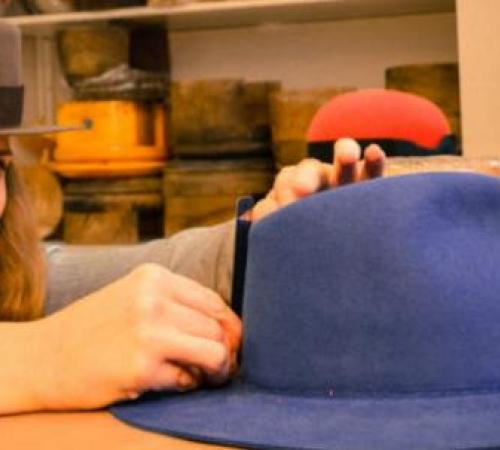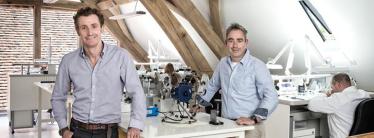
Building a business – British luxury watchmakers Bremont

Bremont grew out of the brothers’ love of both mechanics and aviation. Those passions came together to produce a range of high-quality, endurance-tested mechanical watches that are now worn by explorers, adventurers and the military, as well as lovers of classic timepieces and celebrity watch aficionados such as Tom Cruise and Ewan McGregor. There are bespoke Bremont boutiques in London, New York and Hong Kong.
How did you get started in the watch business?
Nick: It goes back to our days as children and our relationship with our father, Euan, who was an engineer at Cambridge – a very bright guy who was passionate about making things – so we would spend time in his workshop, restoring old cars, planes and clocks. He was very interested in engineering and we just got passionate about watches and clocks through him.
He was also passionate about flying. He did a lot of flying and we used to sit in the back of his aircraft. It wasn’t a full-time job – he just flew at air shows. But as we grew up, we were lucky enough to fly with him, and had lots of adventures all around Europe.
We started doing the air displays as well, and that was when our lives really changed. I was practising for an air display with my father back in 1995 when something went wrong and we crashed. He died, and I broke 30 bones in my body. I was close to the edge and had to spend months in hospital. Everything changed after that. Giles and I reached a tipping point. We had worked in the city for a few years, in corporate finance, but after I had my accident we both said: ‘Life’s short, we don’t really want to be doing this for long.’
Giles: We had always had this passion for watches and we were very aware of the history of British watchmaking, which is amazing – 60 per cent of modern mechanical watches were designed by British watchmakers. There was this amazing history, but there were no British watch companies out there.
We had this long-term desire to build watches in the UK again and we felt that with enough differential we could make it work. Everyone said we were clearly quite bonkers – which I still think we probably are.
We knew we had to go to Switzerland and learn the trade and put a very good team together. We were out in Switzerland for about five years before we were able to sell our first watch. It took a long, long time – a lot longer than we initially thought. But it gave us a good foundation. And then we made this big decision to bring it all back to the UK – which was always part of the plan – and we moved the whole business to Henley.
During that five years without producing anything, how did you survive financially?
Giles: It was mortgaging our houses. It was a tough period.
Nick: When you’ve been doing it for about three years and not sold a watch, you can’t say to your wife, ‘I am going to give up now’. You have to keep on going. And we felt, along the way, that the watches were too special, and that we really felt we had something. And the journalists we saw really felt we had something, so we were pretty confident.
After getting to the stage of making your first watch, the real battle began, didn’t it, to start making and selling them in quantity?
Nick: At first we had mortgaged our houses but eventually we got some external investment, in the form of a couple of business ‘angels’, really. One was John Ayton, who is the founder of Links of London, and is still involved to this day – he has been our chairman ever since. We meet with him once a month or so and it has worked very well. The arrangement allows us to grow and invest in manufacturing, and that is what we have been careful about – putting a lot of the money back into the business. We now employ about 70 people. So what you see at Henley today, is from that money being reinvested.
Your problem, as a new luxury watch brand, was that you were an unknown maker. How do you set about persuading people to pay thousands of pounds for your product?
Nick: It is quite a saturated market. If you’re walking down the high street and you go into Watches of Switzerland or Selfridges, there’ll be a good 20 to 40 other big brands.
So, there were a couple of things we had to do. One was that we clearly had to be different. The key thing for us was that nobody else was British. And this incredible history of watchmaking was something we wanted to carry on. And it is something that differentiates you quite quickly.
The other bit was that, from day one, we knew very clearly, that this watch had to be at a price point. So, say your average price is £4,000-£5,000, within that price point we had to produce a watch that any good professional watchmaker could take the back off and say: ‘This is a really good watch for the money.’ Which is why if you take the back off a Bremont watch, the finish is amazing. You actually get a lot for your money. That is important for us.
When you started, did you find there was a pent-up demand for British watches, so you hit the ground running, or did you have to grow slowly?
Giles: For that first five years we were talked about in the press and people knew the watch was coming, so there was some pent-up demand. And then it was about keeping that press going – as you don’t have any money for advertising to start off with. And also making the retailers get behind you – if you walk into a watch retailer and they love what you’re making, they will take your watch and tell the full story. And we were offering something very special at a very good price.
And then, after our first couple of hard years, social media started kicking off, so you could build a brand like you couldn’t do in the years before. So, in that respect, our timing was right.
How important is the Britishness of the company to you?
Giles: It is extremely important. There are 750 Swiss watch companies, so it is a differentiator It enables us to work with our British partners [which include Jaguar cars, Walking With the Wounded, Bletchley Park, The National Museum of the Royal Navy and Martin Baker, makers of fighter ejector seats] and it enables us to stand out from the crowd. We are also very proud of the apprentice scheme – we are making the people we employ in the UK into quality watchmakers.
In all those areas, being British has become very integral with the brand and what we do. Nick and I are on a bit of a personal crusade here. It’s about bringing manufacturing back to the UK. It’s about the personal enjoyment of building something very complicated in a country that hasn’t made watches on really any scale for 60 or 70 years. That’s part of the fun.
How did you come up with the name for the company?
Nick: We wanted to start an English watch brand, with all the history. This was something we took very seriously.
Of course, our surname is English and so, to do a watch brand called English, the irony would have been lost on quite a few people. And the marketing would have been a nightmare.
After we had gone through this life changing thing with our father, we carried on flying and in the late Nineties we were taking a flight down through France in a 1930s biplane when we hit bad weather and had to make a forced landing in a field. The trouble is if you land in a field in France they get very bureaucratic and they won’t let you take off again. Anyway this guy came to help us – the farmer whose field it was – and he had this barn that we hid the aircraft in.
Well, if our father had lived for another 30 years, this chap would have been him. The barn was filled with old mechanical bits and bobs and engine parts. He had flown planes and he loved his aviation and his name was Bremont. So, when it came to naming the watch brand – which we didn’t do until two or three years into development – that meant something to Giles and me. And it looked nice on a watch. And it was our own history which was very important to us.
Did you tell him? Has he seen the watches?
Nick: He was about 78 at the time. He saw the initial drawings. But sadly he wasn’t around quite long enough to see the whole thing come to fruition.
What makes you a premium brand?
Nick: One of the things goes back to what I talked about before – producing a product which any ‘expert’ in the industry can look at it and say: ‘This is beautifully made’.
The word premium, or luxury, is probably over-used now. Luxury for us isn’t just a relationship with price, it’s about building something that is beautifully made. That will cost more to do. There are a lot of corners we could cut to reduce our costs but we don’t.
Giles: Moving forward as a brand, I think it is all down to quality as well as exclusivity because we make very few compared to the big boys.
We were at an event recently with explorers – ex-Marines – who have walked round the world. They are certainly not from the luxury market. They are adventurers. And we are proud we can serve those different areas.
Your target markets include the military, explorers and some of the extremes that watches can go to, which means your product has to be the best, doesn’t it?
Giles: What we love is that this old mechanical technology hasn’t really changed since Scott made his trip to the South Pole and in certain environments a mechanical watch is the best watch to wear. Okay, it’s very complicated, and with lots of cogs and gears it’s delicate, but it’s old technology that will be working in 200 years’ time. There are very few things that you can buy nowadays that will last for ever. It’s one of those few items that will, in the classic way, be passed to the next generation.
Do you still have time to do hands-on watch design?
Nick: Very much so. All the range have come from us. And while we are not making them – our watchmakers are far better than us at putting things together – we are very active in design. For us, that side is a very important part of the business.
What do you think is the bravest thing you have done in the business?
Nick: Making the decision to bring manufacturing and assembly back to the UK is probably the bravest thing we’ve done. The industry is notoriously Swiss. With some other brands that call themselves British, everything is made in Switzerland or the Far East. It would be far more cost-effective to build in Switzerland, there’s no doubt about that. If you’re talking about the build-cost of a watch, you are probably talking about 30% more to build it in the UK.
It has taken a lot of blood, sweat and tears to have a workshop, machines and an apprentice scheme for watchmakers in this country.
What does the future hold for Bremont?
Giles: We are very ambitious. We want investment and to grow the business. And we don’t see why we can’t get to be on a similar scale to some of the big Swiss watch brands. These things don’t happen quickly. Our core market is the UK and the US and about 20% of our business is making watches for the military. That gives us a huge ability to grow into lots of other markets, so it’s a very fun time for us. And Brexit, in a way, helps what we are trying to do, because it has lowered our prices around the world.
But it is about building the right team to enable us to grow to the next level. And keeping working very hard.
Discover more about Bremont (external link)
Find out more about our Hiscox business insurance
Disclaimer:
At Hiscox, we want to help your small business thrive. Our blog has many articles you may find relevant and useful as your business grows. But these articles aren’t professional advice. So, to find out more on a subject we cover here, please seek professional assistance.
